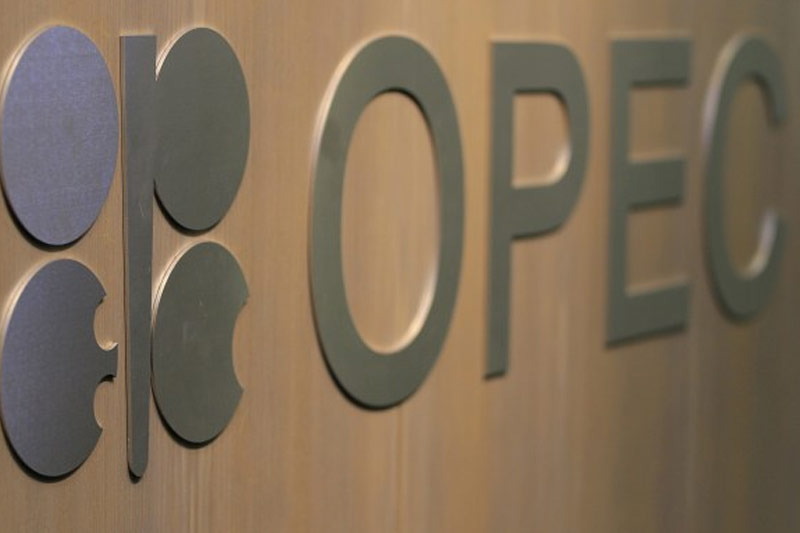(Bloomberg Opinion) -- By delivering a half-shrug to President Donald Trump over the weekend, OPEC’s other message was somewhat lost in the shuffle.
Sunday’s meeting of the committee overseeing the oil exporters’ club’s supply agreement with some other producers (Russia, mainly) didn’t produce the output hike Trump’s latest tweet all but demanded. Oil prices duly rallied Monday morning.
This weekend also saw the release of OPEC’s World Oil Outlook, its annual forecast-fest known colloquially as the “WOO.” The 400-odd pages actually frame the weekend’s main event quite nicely.
OPEC is optimistic about the world’s demand for oil in the medium term:
Even so, OPEC expects its share of the spoils to actually decline, both as a percentage and in absolute terms. In the previous WOO, published last November, OPEC reset its forecasts for U.S. oil supply sharply higher. That, along with increasing production in other countries such as Brazil and Canada, left less room for OPEC’s barrels. The same thing happened in this year’s forecasts. For example, U.S. tight crude-oil production – which includes shale – is now forecast to be 8.3 million barrels a day in 2023, up from the 4.8 million estimate of just two years ago. That is a huge move.
Beneath that headline number, projected demand for OPEC’s crude oil – rather than lower-value natural gas liquids – looks even weaker. While demand for OPEC’s oil overall is now expected to drop by 200,000 barrels a day by 2023, demand for crude drops by almost 1 million barrels a day.
In a way, though, this just comports with the group’s current realities. OPEC’s ability to raise output on a significant and sustainable basis is doubtful. Iranian sanctions, Venezuela’s collapse, and Libya’s chronic instability are obvious supply shocks. But the whole group, outside of the core members on the Arabian peninsula, is hardly a powerhouse when it comes to production growth. Oil’s rally on Monday came despite Saudi Arabia, the group’s de facto leader, signalling a willingness to raise production as needed. The concern is that every extra barrel the country produces is one less in its cushion of spare capacity.
As we have been writing on Bloomberg Opinion for several years, OPEC’s chronic weaknesses and lack of flexibility make it ill-suited to its self-appointed role of managing the oil market. There is now a real risk that a combination of those weaknesses, Iranian sanctions and short-term bottlenecks affecting U.S. supply could push prices back into triple digits within the next 12 months.
Any such windfall for producers would ultimately be damaging for the health of the oil market. It would likely hit U.S. gasoline demand – still the single-largest pool of consumption on the planet – quite quickly (as Trump fears). Moreover, if it came alongside a rising dollar and an extended U.S. trade war, oil consumption in emerging markets – collectively the engine of demand growth –could also come off as prices in local currencies soar. Plus, a third dose of triple-digit oil in the space of a decade or so could only provide grist for the electrification mill.
All of which casts OPEC’s long-term projections in an odd light. Essentially, it expects oil demand to keep growing, hitting almost 112 million barrels a day by 2040. More than half of the anticipated growth, however, happens by 2025, during which time OPEC’s output is expected to fall. It’s only in the late 2020s that the group is expected to start picking up market share aggressively as supply drops elsewhere:
This wouldn’t be the first time OPEC has laid out a vision for itself as last man standing as demand keeps humming and rivals’ wells start to run dry. Yet with peak demand now a relatively run-of-the-mill topic of conversation in oil circles, being the producer of the future is becoming an ever-less secure objective for OPEC. That’s especially so when its weaknesses in the here and now raise real questions over how long the group will even be around.
